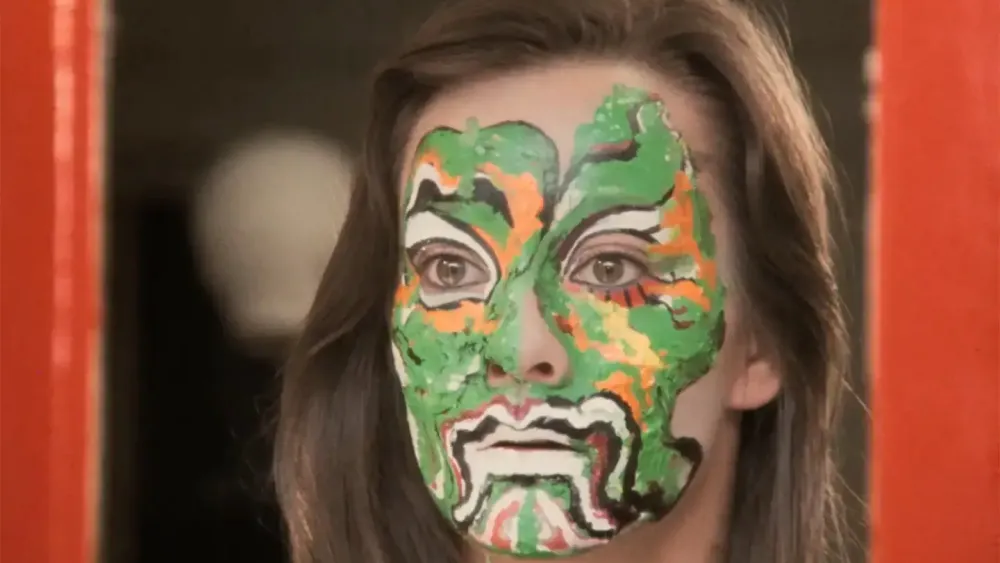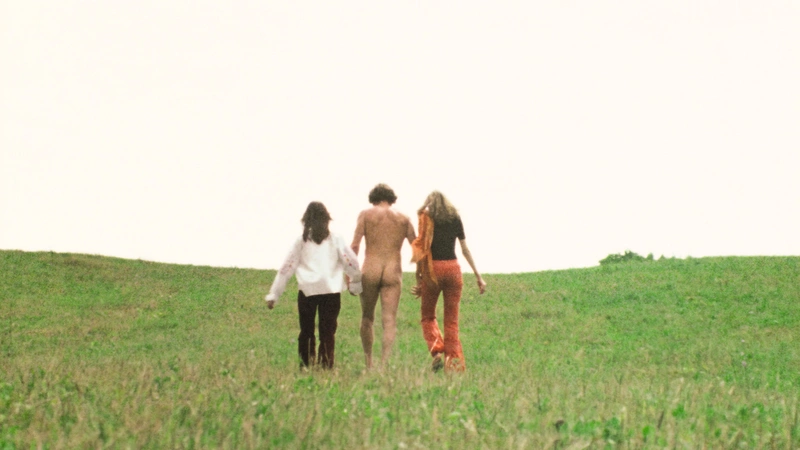| Matthew Lambert |

La Vie Rêvée (The Dream Life) plays at the Trylon Cinema from Friday, April 14 through Sunday, April 16. Visit trylon.org for tickets and more information.
La Vie Rêvée (The Dream Life), a revolutionary 1972 Canadian feminist film directed by Mireille Dansereau, follows the everyday life of Isabelle (Liliane Lemaitre-Auger) and Virginie (Veronqiue Le Flaguais) in Quebec. The movie is highly remarked-upon by Canadian film scholars as it was the first ever female-directed film in Quebec and tackles feminist ideas that are still being fought for today.
La Vie Rêvée displays a cinema vérité style that intertwines the wants and needs of Isabelle and Virginie. The pair work at a Montreal production company and begin spending more time together when they start to question their life decisions. Isabelle spends days thinking about her writing career and wondering if a married colleague is the man of her dreams. Virginie is more confident in her daydreams, focusing on whether she’s wasting her life at the production company as an artist, while challenging every man’s identity that crosses her path. One of my favorite quotes that I’ll be using during the annual Thanksgiving family politics fight is from Virginie to her unintelligent brother: “Screw politics. Don’t you have enough problems?”
Each moment with Isabelle and Virginie reinforces the importance of friendship and having someone to lean on in times of a self-identification crisis. Our early twenties are filled with wondering how to achieve our dreams and if we’re wasting our own time. Balancing those worries with demeaning sexism around every corner, especially with any man they cross paths with, charts a crushing discovery for both women.
One of the best parts of the film revolves around Isabelle and Virginie heading to a remote cabin to enjoy the summer and go fishing with Yves (Guy Foucault). Yves is a pig-headed man, who would absolutely run a Reddit conspiracy board in 2023. Yves seemingly has an opinion on everything and refuses to budge on each non-researched opinion he spouts at the women. Even when Isabelle and Virginie talk about how they’d rather have a child and raise it together, Yves spouts nonsense about how a father is too important to omit from a family. The women laugh at him and tease him throughout their stay at the cabin. When Isabelle rejects Yves’ advances, he falls inward and acts like a wounded puppy dog for the rest of their vacation. The women have to stand up to men like Yves around every turn, even Isabelle’s dream man. It’s a provocative film for its time, especially because women and genderfluid folks are dealing with the same walls and traps today.

The male and female gaze are often discussed in film theory and bear mention for consideration in La Vie Rêvée. In the early moments of the film, shortly after our main characters meet for the first time, we see the differences between their roles and their male counterparts. Isabelle and Virginie are questioning their career paths. The point of view we see from them is stuck in their daydreams. They want to have an opinion and a voice, but struggle to see how they can break through. On the other hand, we never see the dreams of any man, mostly because their reality is more privileged and every opinion they have is stated with confidence. The men already have opinions. They want objects. Any woman that crosses their paths gets a focused stare, like cattle at auction. They’re not viewed as equals, but something they want to take for themselves. And in the end, Isabelle and Virginie take power and leave the daydreaming behind.
One of the best parts of this film is the dynamic, disorientating editing that netted this film Best Editing at the Canadian Film Awards. The film’s title in English translates to The Dream Life, and the editing helps reinforce this idea of spending more time in the respective pair’s heads than in reality. Each time Isabelle begins to think about the man of her dreams, Dansereau shows us her desires rather than telling us about it. The film departs from the wonderful ideal world the characters want by harshly cutting back to their reality, reminding the characters that this is the real world they live in. There’s no doubt Dansereau was a scholar of the works of Agnès Varda, François Truffaut, and Shirley Clarke. There’s a version of this film that over-explains and spends too much time holding the audience’s hand. Dansereau believes audiences should see the desires of her subjects, aside from one chilling monologue that Virginie recounts about a boil-infested green dragon she sees in her dreams.
The film was not regularly shown in Canada and wasn’t screened in America until last year for its 50th anniversary. In fact, even preparing to write this review was difficult. The film isn’t streaming and finding copies are few and far between (I almost ordered a copy from a Pakistani website until I found a source I’m not going to tell you about that may result in my laptop needing to have a factory reset). Seeing this film at the Trylon Cinema may actually be your only shot. There have been short screenings around the country, but they are difficult to find.
Edited by Olga Tchepikova-Treon
